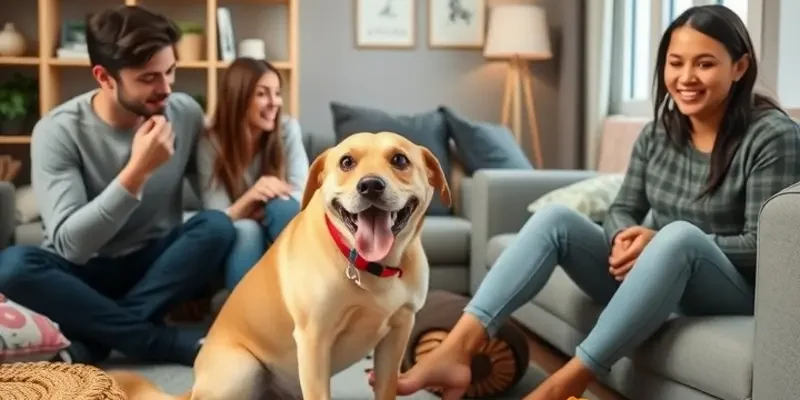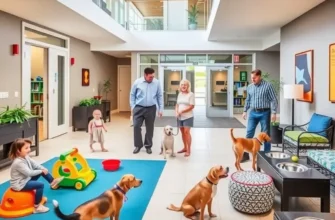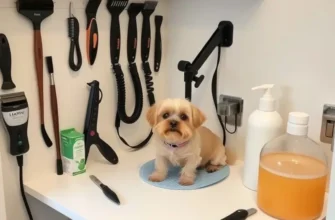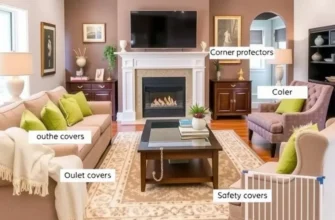Finding a perfect apartment that accommodates both your family and furry friends can be a challenge. As pet owners, ensuring the safety and well-being of our animals is a top priority, especially in a shared living environment. Vaccinations are an essential part of responsible pet ownership, protecting not only pets but also children and other inhabitants of your home. By keeping your pets vaccinated, you are investing in their health and ensuring a comfortable, safe space for everyone. Understanding vaccination protocols, scheduling, and even communicating with your landlord about pet policies can help you navigate apartment living successfully. Dive into this guide for straightforward advice on how to keep your pets’ vaccinations up-to-date while living in a rental community, easing your mind and enriching your family’s experience.
Understanding the Importance of Vaccinations
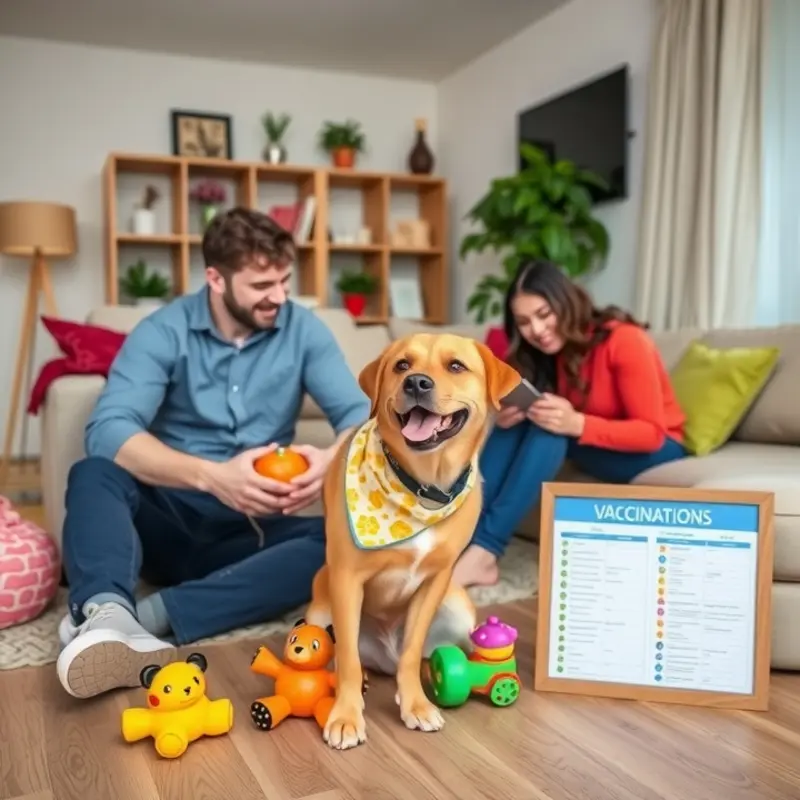
Vaccinations are a crucial part of your pet’s health regimen, serving as the first line of defense against various diseases. In an apartment setting, ensuring your pet is vaccinated not only safeguards their health but also protects your children and family members who share that environment. Living in close quarters requires a thoughtful approach to keep everyone safe from potential health risks.
Common vaccines provide essential protection against diseases that could be easily transmitted in an apartment environment. For dogs, vaccines like rabies, distemper, and parvovirus are imperative. They protect your pup from severe illnesses that are often fatal without vaccination. Feline friends, on the other hand, often require vaccines like feline herpesvirus, calicivirus, and panleukopenia virus. These vaccines prevent core diseases that are easily spread if your cat comes into contact with another animal or contaminated surfaces.
Living in an apartment often means encountering other pets during walks or in shared spaces. For both cats and dogs, having up-to-date vaccinations is essential to prevent diseases that can be spread via social interactions. Moreover, some vaccinations, such as rabies, are required by law and are particularly important in areas with wildlife nearby. Even if your pets are primarily indoors, maintaining vaccinations helps mitigate the risk of disease transmission through secondary contacts, such as insects or humans inadvertently carrying germs inside.
Keeping track of your pet’s vaccination schedule doesn’t have to be a daunting task. Setting reminders on your phone or using a shared calendar with family members protects your pets while streamlining your busy schedule. Often, veterinarians will provide you with a vaccination card or digital records, which you can scan and store on your phone for quick reference. Consider combining this with other apartment wellness practices found in resources such as a dedicated apartment wellness checklist that might help you in maintaining a healthy environment for your family.
Scheduling appointments well in advance and ensuring they don’t clash with other family activities can help manage your time efficiently. Consider timing vaccinations around less hectic periods, such as after school or work, to avoid stress. If multiple family members are involved in pet care, create a rotation schedule so everyone contributes to maintaining the pet’s health records.
Ultimately, vaccinations are not just a legal formality or an annual box to tick; they are an essential component of responsible pet ownership. By prioritizing your pet’s health, you contribute to a safer living space that extends this care to your entire family. Setting up a seamless system to manage vaccinations turns what might seem like just another chore into a manageable routine that bolsters health and happiness in your apartment.
Creating a Pet Vaccination Schedule
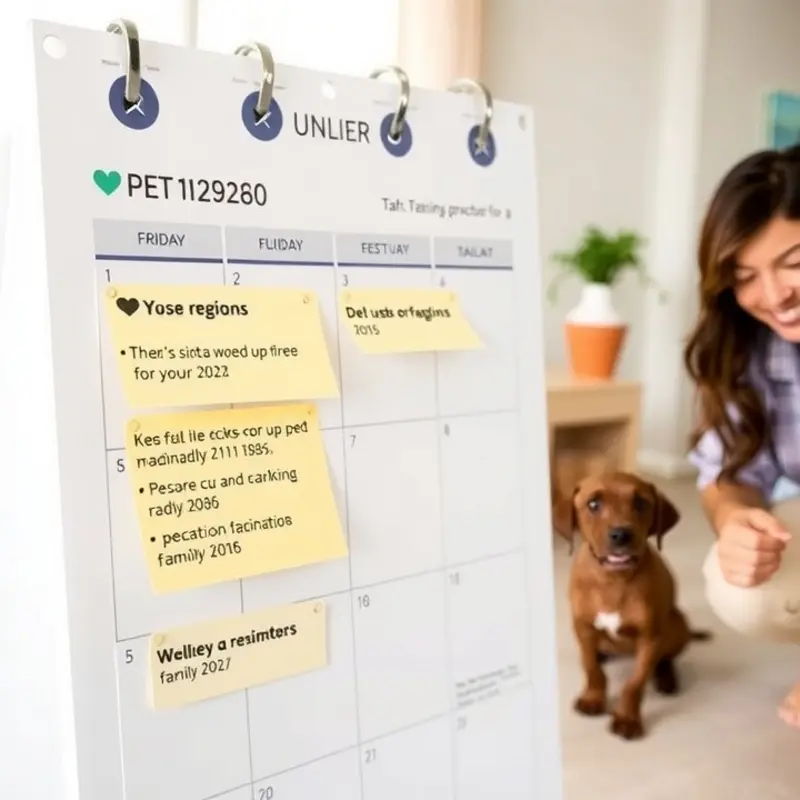
Establishing a vaccination schedule for your apartment-dwelling pet is crucial for their health and your peace of mind. Start by identifying a qualified veterinarian nearby, especially one that has experience with pets that live in smaller, urban spaces. Online reviews can be a helpful resource in finding trusted local options.
Make your pet’s first visit to the vet a positive experience. Bring any previous medical records if you have them. The vet will conduct a thorough check-up, assessing your pet’s health status and recommending a vaccination plan tailored to their needs. Essential vaccinations typically required for cats and dogs include those for rabies, distemper, and parvovirus, amongst others.
Next, schedule the vaccinations. Your vet will provide a timeline of when each vaccine is due. Add these dates to a digital calendar to receive reminders. Some mobile apps can help manage pet health records and offer automatic notifications of upcoming shots.
Landlords may have concerns about tenants with pets, especially regarding health and safety. Addressing these proactively can ease their worries. Provide documentation of your pet’s vaccinations and health check-ups. Reassuring your landlord that you are committed to maintaining your pet’s health can prevent potential issues.
Additionally, consider how to respect your neighbors’ space. Not everyone may be comfortable around pets, especially parents who prioritize a clean environment for their children. Keeping your pet vaccinated minimizes health risks and exemplifies your commitment to being a responsible tenant. Read more on maintaining a harmonious living space in pet-friendly buildings here.
For managing ongoing vaccinations, create a system that works for you. Some owners like to use a physical planner, while others prefer digital reminders. Regardless of the method, consistent tracking is key to ensuring no vaccinations are missed, keeping your furry friends healthy and happy in your family-friendly apartment.
Final words
Maintaining your pet’s vaccination schedule is essential for their health and the safety of your whole family, especially in an apartment setting. By understanding the types of vaccines needed and creating a manageable schedule, you can ensure that your furry friend remains protected. This preparation not only offers peace of mind for you as a pet owner but also helps foster a harmonious living environment for everyone involved. Prioritizing your pet’s health through regular vaccinations is truly a gift that will benefit your entire household. Remember, a healthy pet equals a happy home!

